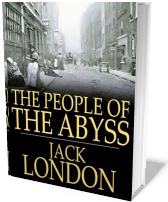Call of the Wild review
This is a story about a dog named Buck who lives on a beautiful estate in California, but is sold off as a sled dog.
After being badly beaten by a dog trainer, Buck is used to pull mail in the Arctic. Although the work is tough, he learns quickly and soon takes over the sled team by killing the previous leader.
 The dog team is sold off to different sled drivers and nearly worked to death. They are in need of rest, but because of mismanagement, the strength of the dogs gets drained out of them until they are killed off one by one. Fortunately, Buck is saved by a man named John Thornton, a kind man with a heart for animals.
The dog team is sold off to different sled drivers and nearly worked to death. They are in need of rest, but because of mismanagement, the strength of the dogs gets drained out of them until they are killed off one by one. Fortunately, Buck is saved by a man named John Thornton, a kind man with a heart for animals.
John takes in Buck and helps him recover. Buck, having been mistreated by others in the past, is apprehensive at first, but then grows to love John. In fact, Buck pulls a 1,000 pound sled to win John a bet.
John takes Buck and the rest of his dogs into the back country, searching for a mythical Lost Cabin. During this search, Buck wanders into the forest by himself and meets a wild wolf, which sparks a primal instinct within him.
One night, after returning from the forest, Buck sees that John has been killed by a group of local Indians.
In the end, with nowhere else to go, Buck integrates into the local wolf pack, becoming a part of local Indian mythology.
First, this story discusses the relationship between domestic and primal instincts. Buck is introduced as a soft dog, living a luxurious life on the grounds of a mansion. But when he is taken and placed in the wild with other dogs, something within him changes. Yet, these changes are not foreign to him. It's like these instincts are already a part of him, just unearthed.
And what makes this more relatable to readers, who do not necessary experience that call of the wild in our highly modernized society, is how these primal instincts may have more to do with morality than grunts and cavemen drawings.
The story suggests that often to survive, moral nature must die. As Buck tries to assimilate to his new outdoor lifestyle, he is timid and almost polite, to the point where the other dogs eat his food. However, he soon learns to steal food to survive. In fact, he learns that it is easier to steal than not to steal.
But why would readers enjoy a story about non-talking dogs? It's because of the applicability of the story to humans through the style of writing. As written, readers are placed in the head of dog, trying to understand the sled dog culture.
And as the story goes on, readers discover how humanized Buck's personality is. Buck is relatable as a character. Any person who has worked in a job that they did not necessarily want can understand the struggles Buck goes through in this story. It's a frustration derived by helplessness, anger, and fear, all human emotions, yet felt by a dog and projected to a level of relatability.
Through Minute Book Reports, hopefully you can get the plot and a few relevant discussion points in just a couple of minutes.
FULL AudioBook






















